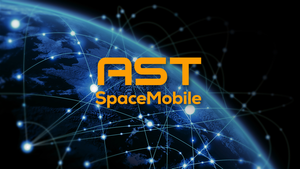For years, Tether has operated at the center of the global stablecoin market while carrying the baggage of its offshore origins. The company’s key corporate entities were incorporated in the British Virgin Islands (BVI), a jurisdiction best known for its secrecy rather than transparency. The BVI’s prominence in the Panama Papers and other leaks made clear why so many companies choose the islands: anonymity, minimal oversight, and the ability to move money in the shadows.
That history has followed Tether. A product meant to function as a stable, dollar-pegged anchor in crypto markets has been managed from a jurisdiction associated with shell companies, organized crime figures, and hidden wealth. In an industry already struggling to establish credibility, the optics are complex. Stablecoins are supposed to represent trust, transparency, and reliability — not secrecy. Their value lies in speed, low transaction cost, and the assurance that one token equals one dollar. They are not meant to be speculative plays or tools for anonymous transfers. Yet Tether has consistently built its business on the edge of opacity.
The passage of the GENIUS Act in Washington forced a reckoning. The law requires stablecoins offered in the United States to be issued under U.S. jurisdiction, backed by cash or Treasuries, and subject to defined oversight. For Tether, the solution was not to move its core operations to the United States but to launch a new affiliate: USAT. The structure outsources the “U.S. compliance” layer to Anchorage Digital Bank, N.A., while leaving Tether’s offshore empire intact.
Anchorage was chosen as the issuer, with Cantor Fitzgerald as custodian of the reserves. On paper, the arrangement meets statutory requirements. In practice, it raises new questions. Anchorage is not the pristine partner Tether wants to present. The bank received an OCC consent order in 2022 for failures in its anti-money-laundering program, remaining under sanction for more than three years before the order was terminated in 2025. During that period, media reports also indicated the Department of Homeland Security’s El Dorado Task Force had made inquiries with former Anchorage employees, suggesting continuing federal scrutiny.
The optics do not improve when examining Anchorage’s structure. Despite its name, Anchorage is not headquartered in Alaska; it is headquartered in San Francisco. It operates a large engineering hub in Portugal, maintains a licensed entity in Singapore, and has announced partnerships in Thailand and other parts of Asia. Its investor base includes GIC, Singapore’s sovereign wealth fund, alongside Wall Street firms such as Goldman Sachs, KKR, and BlackRock-managed funds. For a company intended to be the American face of Tether’s compliance, the picture appears more like a global patchwork than a national institution.
Anchorage’s charter provides a regulatory credential, but the history of deficiencies and the international footprint complicate its role. After years in the regulatory penalty box, Anchorage was seeking a marquee deal. Tether, under pressure to meet new legal standards, needed a partner willing to step into the role. The result is a marriage of convenience: a foreign-rooted stablecoin operator joining with a bank just emerging from federal sanctions.
For policymakers and market participants, the questions are obvious. If stablecoins are to become part of the financial system, they must be synonymous with stability, transparency, and trust. Using a BVI-based company, known for its opacity, paired with a U.S. bank that has struggled with compliance and maintains significant foreign ties, presents a very different image. Instead of building confidence, it suggests that corners may be cut and standards are lowered to meet the letter of the law.
Stablecoins are not meant to replicate the worst of offshore finance. They are supposed to be the opposite: fast, cheap, reliable, and fully accountable. Tether’s partnership with Anchorage may satisfy technical requirements, but it does little to address the central issue. The world’s largest stablecoin operator is still asking markets to trust a structure born in secrecy and rebuilt on damaged goods.







